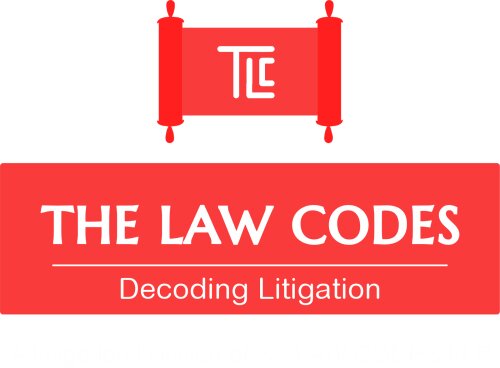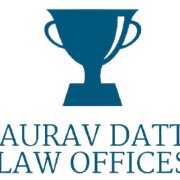Best Constitutional Law Lawyers in Chandigarh
Share your needs with us, get contacted by law firms.
Free. Takes 2 min.
List of the best lawyers in Chandigarh, India
About Constitutional Law in Chandigarh, India:
Constitutional Law in Chandigarh, India refers to the body of laws and principles that govern the structure, powers, and functions of the government. It is based on the Indian Constitution, which outlines the rights and duties of citizens, as well as the powers and responsibilities of the state. Constitutional Law ensures that the government operates within the framework of the Constitution and upholds the fundamental rights of individuals.
Why You May Need a Lawyer:
There are several situations where you may need a lawyer specializing in Constitutional Law in Chandigarh, India. Some common reasons include challenging the constitutional validity of a law or government action, seeking redress for violations of fundamental rights, or navigating complex legal issues related to governmental powers. A lawyer can provide expert guidance and representation to protect your rights and interests.
Local Laws Overview:
In Chandigarh, India, Constitutional Law is governed by the Indian Constitution, which is the supreme law of the land. Key aspects of local laws that are particularly relevant to Constitutional Law include fundamental rights, directive principles of state policy, separation of powers, and the structure of government. It is important to understand these laws to effectively uphold your rights and challenge any unconstitutional actions.
Frequently Asked Questions:
1. What are fundamental rights?
Fundamental rights are basic rights guaranteed to every citizen of India by the Constitution. These rights include the right to equality, right to freedom of speech and expression, right to personal liberty, right to education, and right to constitutional remedies.
2. How can I challenge the constitutional validity of a law?
You can challenge the constitutional validity of a law by filing a writ petition in the High Court or Supreme Court of India. A lawyer specializing in Constitutional Law can help you navigate the legal process and argue your case effectively.
3. What are directive principles of state policy?
Directive principles of state policy are guidelines for the government to promote the welfare of the people. Although not enforceable in a court of law, these principles are fundamental in governance and inform the decisions of policymakers.
4. What is the role of the judiciary in upholding constitutional rights?
The judiciary plays a crucial role in upholding constitutional rights by interpreting the Constitution, adjudicating disputes related to constitutional law, and ensuring that the government acts within the limits of its powers.
5. Can the Constitution be amended?
Yes, the Constitution can be amended through a prescribed process outlined in the Constitution itself. However, certain core principles of the Constitution, known as basic structure doctrine, cannot be altered.
6. How can I file a Public Interest Litigation (PIL) related to constitutional issues?
You can file a PIL in the High Court or Supreme Court of India to address issues of public interest, including those related to constitutional rights. A lawyer with experience in Constitutional Law can assist you in drafting and filing the PIL.
7. What are the powers of the President and Governor in the Indian Constitution?
The President and Governor have executive, legislative, and discretionary powers as outlined in the Indian Constitution. These powers are subject to constitutional limitations and can be challenged in court if exercised unconstitutionally.
8. What is the significance of the separation of powers in Constitutional Law?
The separation of powers ensures a system of checks and balances between the legislature, executive, and judiciary, preventing any one branch of government from becoming too powerful. This principle is essential for upholding democracy and protecting individual rights.
9. How can I seek redress for violations of my fundamental rights?
If your fundamental rights have been violated, you can file a writ petition in the High Court or Supreme Court of India seeking redress. A lawyer specializing in Constitutional Law can help you pursue legal remedies and seek justice for the violation of your rights.
10. What are the limitations on the powers of the government in the Indian Constitution?
The powers of the government are subject to constitutional limitations, including fundamental rights, directive principles of state policy, and the basic structure of the Constitution. Any government action that goes against these constitutional provisions can be challenged in court.
Additional Resources:
For additional resources and guidance on Constitutional Law in Chandigarh, India, you can refer to the National Legal Services Authority (NALSA), Supreme Court of India, High Court of Punjab and Haryana, and various legal aid organizations that provide assistance to those in need of legal advice.
Next Steps:
If you require legal assistance in Constitutional Law in Chandigarh, India, it is advisable to consult with a lawyer specializing in this field. They can provide you with expert advice, represent you in court proceedings, and help you navigate the complexities of Constitutional Law to protect your rights and interests.
Lawzana helps you find the best lawyers and law firms in Chandigarh through a curated and pre-screened list of qualified legal professionals. Our platform offers rankings and detailed profiles of attorneys and law firms, allowing you to compare based on practice areas, including Constitutional Law, experience, and client feedback.
Each profile includes a description of the firm's areas of practice, client reviews, team members and partners, year of establishment, spoken languages, office locations, contact information, social media presence, and any published articles or resources. Most firms on our platform speak English and are experienced in both local and international legal matters.
Get a quote from top-rated law firms in Chandigarh, India — quickly, securely, and without unnecessary hassle.
Disclaimer:
The information provided on this page is for general informational purposes only and does not constitute legal advice. While we strive to ensure the accuracy and relevance of the content, legal information may change over time, and interpretations of the law can vary. You should always consult with a qualified legal professional for advice specific to your situation.
We disclaim all liability for actions taken or not taken based on the content of this page. If you believe any information is incorrect or outdated, please contact us, and we will review and update it where appropriate.











